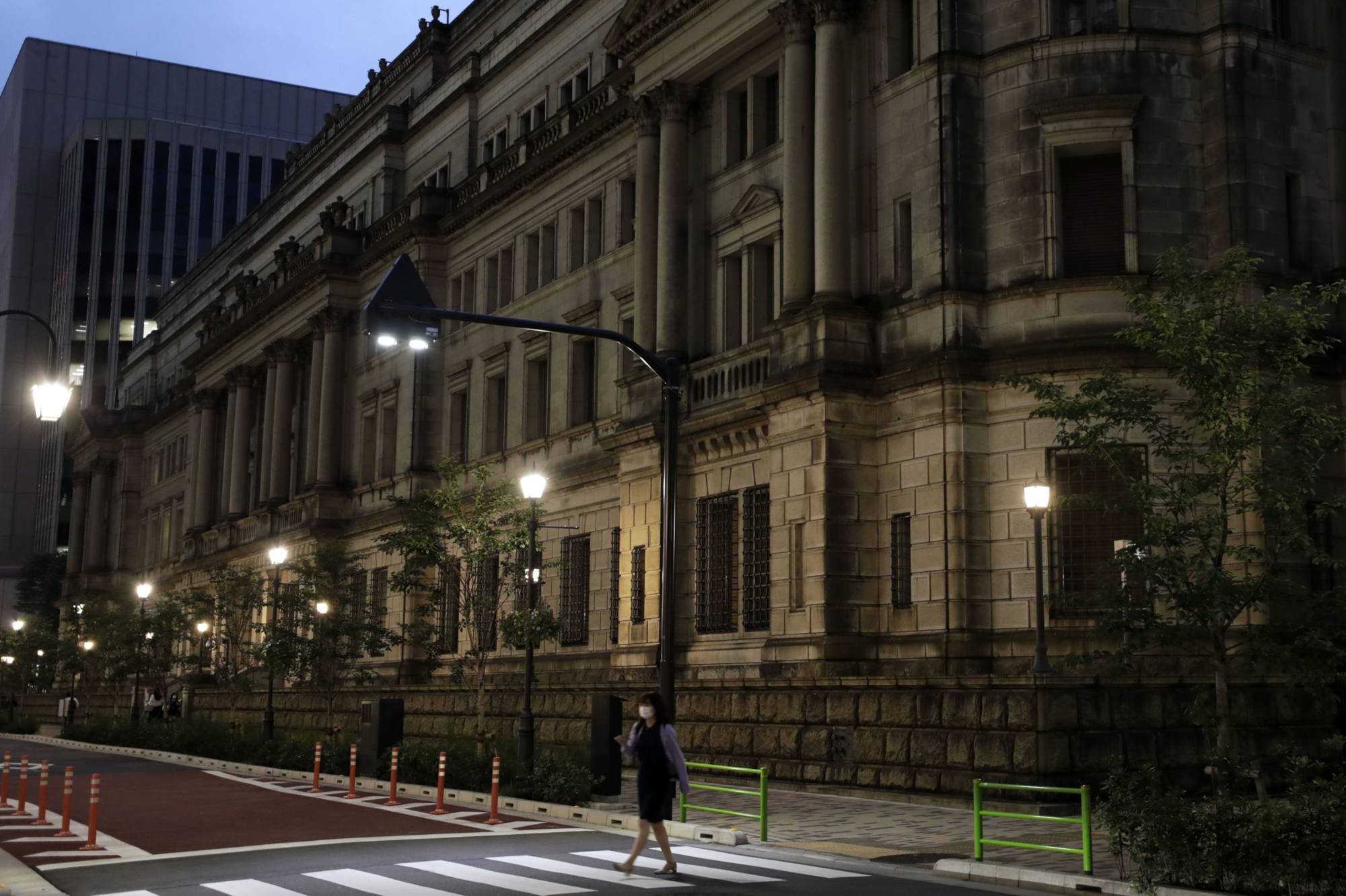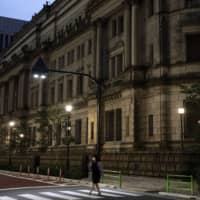Authorities plan to conduct further stress tests on Japan's five major financial institutions this year to look into how the coronavirus pandemic could affect their earnings and capital, the central bank said Tuesday.
Unlike many Western nations, where regulators stress test many banks simultaneously based on standardized risk scenarios, Japan had until late last year relied on stress tests conducted individually by each bank.
As prolonged ultralow interest rates prod major banks to diversify operations in search of yields, however, Japanese authorities decided to align their approach with that of their overseas counterparts, the Bank of Japan said in a report.
For the first time, the BOJ and banking regulator the Financial Services Agency (FSA) conducted joint stress tests on five major financial institutions in December, it said.
The regulators presented its findings to the five institutions — Japan's three mega-banks plus Norinchukin Bank and Sumitomo Mitsui Trust Holdings — with feedback in July.
The BOJ and FSA will conduct such stress tests regularly, with the one this year likely to scrutinize how resilient the financial institutions are to risks posed by COVID-19, the report said.
"The biggest challenge would be on how to set the baseline and 'tail event' scenarios that take into account the impact from the coronavirus pandemic," the report said.
The findings of the stress tests will not be published and used mostly as a basis for communication between the regulators and financial institutions, it said.




















With your current subscription plan you can comment on stories. However, before writing your first comment, please create a display name in the Profile section of your subscriber account page.